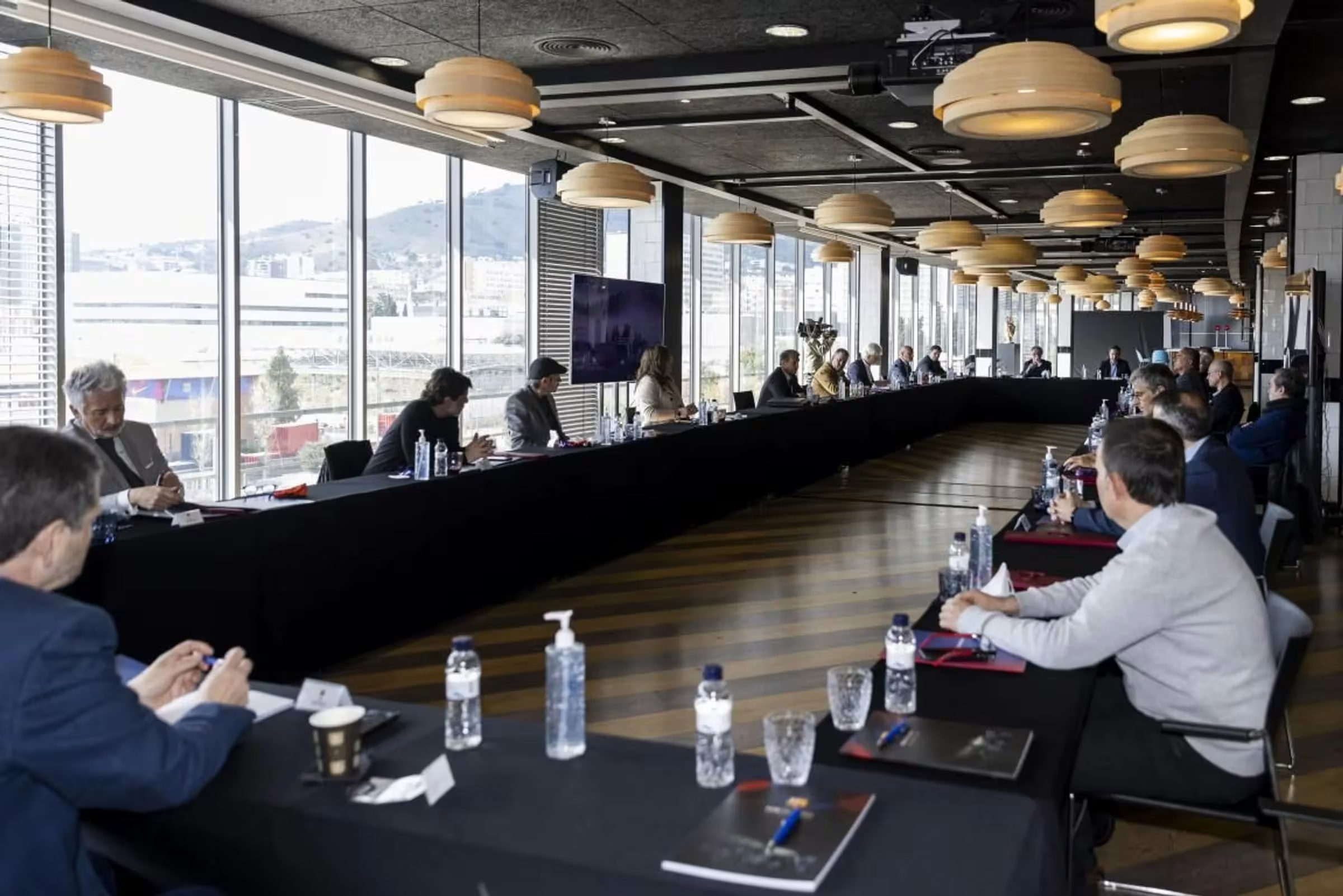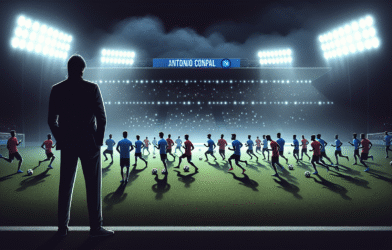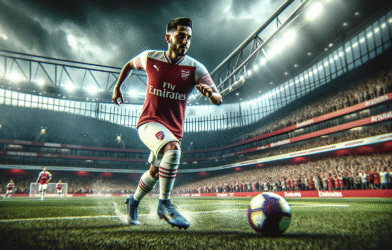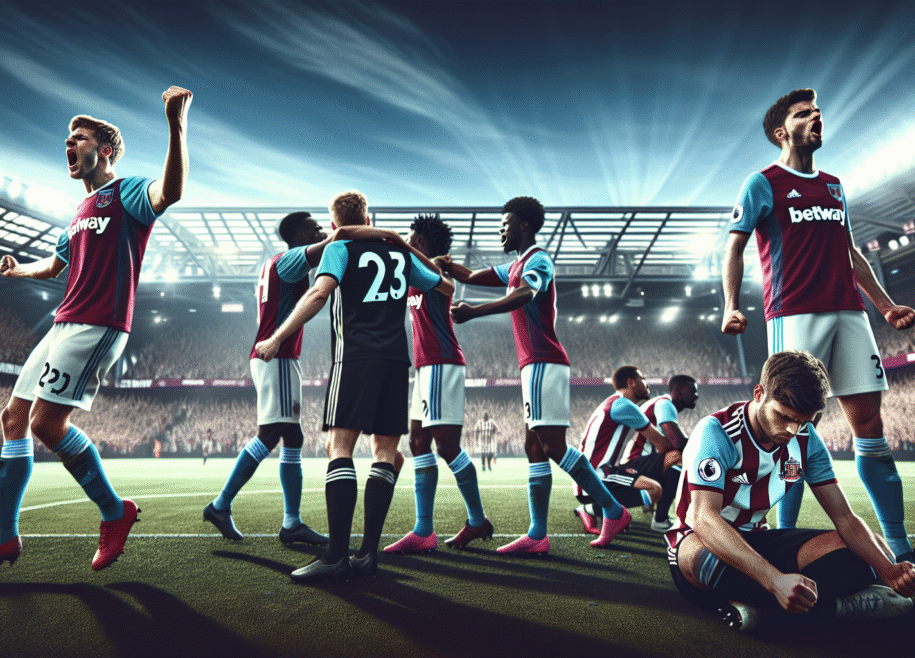Subtotal $0.00
Overview of the slump
FC Barcelona arrive at a defining moment after a heavy 4-1 defeat to Sevilla, a result that crystallised a slump that has slowed the Catalan club’s momentum. Head coach Hansi Flick is prioritising urgent strategic discussions during the international break, with Barcelona managerial meetings at the center of the plan. The aim is immediate, tangible improvement as the calendar resumes with domestic duties and possible European challenges looming. The mood at the Camp Nou blends urgency with resolve, as stakeholders await concrete actions that restore rhythm, confidence, and clarity in both personnel usage and tactical approach. The club recognises that a short pause can become a catalyst if the right decisions are made and rapidly implemented.
Root causes and context
The slump is not simply a run of bad luck; it follows a stretch of inconsistent results that have unsettled the team’s rhythm. Defensive solidity wavered at key moments, while transitions in midfield have lacked bite and pace. In attack, efficiency in the final third has been variable, and there has been a mismatch between build-up play and finishing touch. Flick has signalled the need for a data-informed audit of patterns, responsibilities, and timing across the pitch. This is where Barcelona managerial meetings come into play, as the coach seeks to align the squad behind a shared plan and sharper execution. The objective is to identify failures and fast-track remedies that can be translated to the pitch within days rather than weeks. For fans, the message is clear: action is coming, not rhetoric.
What the data suggests
Performance data indicate gaps in transitional speed and structure. Defensive organisation at times leaks space, while pressing intensity has fluctuated, allowing opponents to build from the back. In midfield, the balance between control and dynamics needs recalibration to support forwards more consistently. Shots on target and finishing quality have become the decisive factors in outcomes, making it essential to tighten sequences from possession to shot. These insights will feed directly into the Barcelona managerial meetings, where coaches, analysts, and players will review video, set-piece routines, and pressing triggers. The goal is to convert analysis into actionable drills and a more dependable pattern of play. For broader context, see recent match reports and statistical breakdowns from outlets such as BBC Sport.
Outbound link: BBC Sport
Further reading: Barça Official News
Flick’s plan during the international break
With the season paused for international duty, Flick plans a concentrated sequence of Barcelona managerial meetings and hands-on reviews. This window is envisioned as a crucible for practical changes, not theoretical talk. The plan mixes data-driven analysis with input from the medical staff and senior players, aiming to produce concrete steps that can be implemented quickly once fixtures resume. The focus areas include defensive organisation, balance in midfield transitions, and attacking efficiency in the final third. The break is seen as a rare opportunity to reset rhythms, refine patterns, and re-establish trust across the squad.
Immediate actions and rotation policy
Rotation will be a central tenet of Flick’s approach during the break. The aim is to safeguard fitness, manage fatigue, and exploit tactical flexibility. Players who have carried heavy workloads may see reduced minutes, while fringe options are given chances to stake a claim. The emphasis is on maintaining depth across competitions without compromising consistency. This is where the Barcelona managerial meetings come into play, shaping a rotation policy that supports performance, morale, and continuity. Early signals point to a careful recalibration of squads for domestic fixtures and potential European ties, balancing reliability with fresh energy.
Data-driven review and consultation
The discussions will be anchored in data: video analyses, set-piece reviews, pressing patterns, and positional responsibilities. The medical team will contribute wear-and-tear assessments to ensure decisions are sustainable. Senior players will have a voice in shaping the plan, reinforcing accountability and buy-in across the squad. The objective is to produce a cohesive blueprint: a tactical adjustment, a revised rotation plan, and a clearer communication framework. Outbound link: Barça Official.
Further reading: UEFA Champions League
Tactical and personnel considerations
The slump has forced a closer examination of Barcelona’s tactical architecture and the personnel that drive it. Flick is weighing changes that could restore balance, efficiency, and pace without eroding the core principles that define Barça. Clear roles, sharper transitions, and a more purposeful use of width are among the proposed adjustments. The Barcelona managerial meetings are expected to surface concrete ideas on defensive shape, midfield distribution, and attacking timing, with a view to translating them into rapid on-pitch improvement.
Defensive structure and organization
Defensive solidity rests on compact lines, disciplined pressing, and quick transitions. Flick could experiment with a more dynamic backline, allowing full-backs to balance forward runs with cover behind. Central pairing choices will be scrutinised, as will the sacrifice of width and the balance between aggressive pressing and compact blocks. These decisions will cascade into training drills and match-day setups, while maintaining the team’s pressing ethos that has long defined Barcelona’s identity. The outcomes of the Barcelona managerial meetings will guide whether tweaks are incremental or more substantial.
Midfield transitions and balance
Midfield balance is vital for connecting defence and attack. The coaching staff may explore different pivots and support players to better control tempo and provide verticality in transitions. Quick, incisive passing should feed a dynamic frontline, but it must be underpinned by smarter rotation and resource management. Expect conversations about who shoulders defensive duties, who presses in higher lines, and how to deploy wingers and forwards to stretch opposition lines. Once again, the Barcelona managerial meetings will steer the direction, with decisions tested in training before any changes are rolled out in matches.
Implications for Barcelona’s campaign
The immediate consequence of Flick’s plan is a recalibration of expectations across domestic duties and potential European challenges. The aim is clear: convert the robustness of planning into consistency of results. The upcoming fixtures will test the club’s ability to translate the lessons from the international break into tangible gains. The broader implication for Barcelona’s campaign is a renewed emphasis on tactical clarity, squad harmony, and a sharper competitive edge—qualities that could redefine the season if executed effectively. The leadership team will be watching closely as players adapt to new patterns and as supporters assess the speed of transformation, both in training and on match days.
Short-term impact and next fixtures
In the short term, the team will be judged by how quickly it stabilises near-term results. The international break provides a window for testing lines, roles, and combinations that could yield more cohesive attacking moves and sturdier defensive blocks. If the changes are swift and well-communicated, Barcelona could regain momentum ahead of a demanding run of fixtures. The coaching staff’s communication with fans and stakeholders will be crucial to maintaining confidence during this transition period.
Europe and long-term strategy
Looking beyond immediate fixtures, the break will also shape how Barcelona approaches European competition and the broader season strategy. A more fluid midfield, higher pressing intensity, and improved finishing could unlock additional avenues for success on multiple fronts. The Barcelona managerial meetings will lay the groundwork for a sustainable plan that seeks overnight gains without compromising long-term development, ensuring that the club remains competitive in both league and Europe. For ongoing updates, refer to authoritative sources and club communications as the plan unfolds.
















